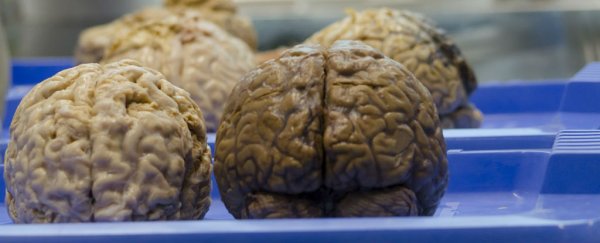The more forgetful among us might soon have access to brain implants that can help jog our memories, if new technology developed by the US Defence Force becomes more widely adopted. New electric array brain implants are reportedly "showing promise" in assisting people who are trying to dig up memories from the farthest reaches of their minds.
The Defence Advanced Research Projects Agency (DARPA) team is primarily concerned with assisting those who have suffered from traumatic brain injuries, rather than people who tend to leave the house without picking up their house keys, but the process could be applied across the board, they say. "Everyone has had the experience of struggling to remember long lists of items or complicated directions to get somewhere," explains program manager Justin Sanchez, in a press release. "Today we are discovering how implantable neurotechnologies can facilitate the brain's performance of these functions."
What makes the new process so innovative is the way it 'reads' the neural processes of the brain - it can see how our minds form and retrieve memories, and is even able to predict when our powers of recall are about to let us down. Sanchez says his team is looking at when the optimum moment for electrical stimuli really is: when the memories are formed, when the memories are recalled, or somewhere in between.
The team placed small electrode arrays in the areas of the brain known to be responsible for the formation of declarative memory - used for short and simple memories like lists - spatial memory, and navigation. The volunteers enlisted in the study were not suffering from memory problems in particular, but had been scheduled to undergo brain surgery for other neurological issues. When tested, their powers of recall were improved.
Full details of the study are being withheld pending a peer review and publication in a scientific journal, but some results have already been presented at a technology forum hosted by DARPA itself, as Troy Oakes from The Vision Times reports. "We still have a lot to learn about how the human brain encodes declarative memory, but these early experiments are clarifying issues such as these and suggest there is great potential to help people with certain kinds of memory deficits," Sanchez told him.
DARPA scientists are also looking at ways the brain can be stimulated to aid learning as well as improve memory recall. We already know that 'replaying' a particular skill in our mind's eye can help us to learn it, and later this year the agency is going to begin trying to map out these replay processes as they happen in the brain.
